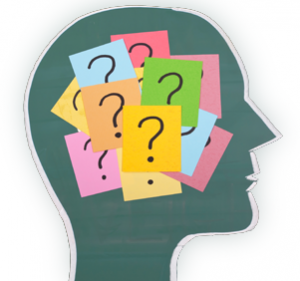
Answer- A concussion is a Traumatic Brain Injury (TBI) that can happen to anyone at any time. It is caused by blows or jolts to the head and is a serious injury. A concussion disrupts the normal function of the brain. It is usually not life-threating, but it should not be taken lightly.
Question- How do you get a concussion?
Answer- A concussion is caused by a blow to the head that may be direct or indirect. A direct blow is when you get hit in the head by running into another player, hitting it on a hard surface, or being hit in a fight. An indirect blow is when your head jolts from moving rapidly back and forth, like in a car crash.
Question- What are the symptoms of a concussion?
Answer- Every head injury is different and symptoms may appear right away or take time to develop and be hard to notice. A concussed person may look fine even though they are feeling or acting different. Symptoms may come and go, and last for days or weeks or even longer.
Symptoms include:
- Headaches
- Remembering things, concentrating, paying attention, solving problems, slowness in thinking, reading, acting, speaking, organizing things or confusion
- Feeling tired, fatigued, drowsy, trouble sleeping, or sleeping more than usual
- Nausea, vomiting, numbness or tingling
- Increased sensitivity to sounds, lights, taste or smell
- Vision problems
- Ringing in the ears
- Mood changes, feeling sad, irritated or becoming angry easily
Question- What should I do if I suspect that I have a concussion?
Answer- Be evaluated by a doctor who has experience with concussions.
Question- How do you evaluate a concussion?
Answer- A physician can usually diagnose a concussion based on the nature of your injury and your symptoms. An evaluation may include a brain scan and blood tests to make sure other problems are not present.
Question- What is the treatment for a concussion?
Answer- Your doctor can give specific treatment instructions to follow. Mental and physical rest helps the brain to heal. Return to activities slowly, and limit activities that require a lot of thought or concentration. Avoid contact activities that could lead to another brain injury such as sports. Keep all follow up appointments. Repeated evaluation of your symptoms will help your doctor guide you on when it’s safe to return to work, school or play.
The information provided is for general interest only and should not be misconstrued as a diagnosis, prognosis or treatment recommendation. This information does not in any way constitute the practice of medicine, or any other health care profession. Readers are directed to consult their health care provider regarding their specific health situation. Marque Medical is not liable for any action taken by a reader based upon this information.

